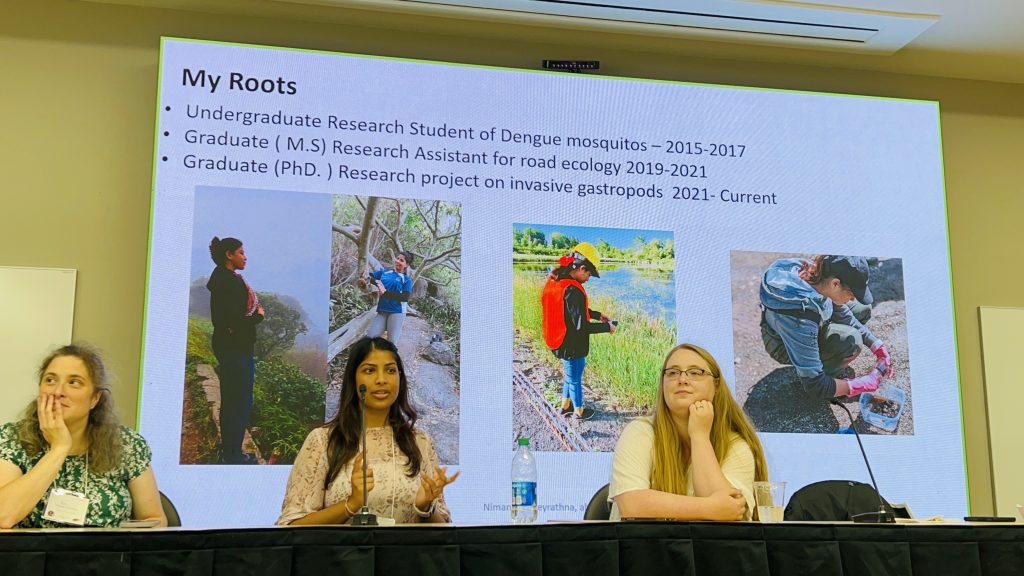Nimanthi Abeyrathna, an Interdisciplinary Bioscience and Biotechnology PhD student at Clarkson University, recently served as a panelist in a discussion on inclusive fieldwork and field courses hosted by the American Malacological Society’s (AMS) Justice, Equity, Diversity, and Inclusion (JEDI) Committee.

AMS covered Abeyrathna’s registration for the conference, and she also was awarded a travel grant by the London Malacological Society to attend the event.
The panel was held at the American Malacological Society’s annual meeting, in Alabama on Aug. 3. Abeyrathna said topics covered during the panel ranged from general field work safety to discussions on women in field work and racial, cultural and gender dynamics and issues.
“There was lots of attention on the topics that we want people to know like, pregnancy, menstruation and menopause when doing field work,” Abeyrathna said. “Emotional support when away from loved ones, finding mental stability in a field work station, what do you do in an emergency? What do you do if you encounter hunters in your field station? Or situations involving entering public lands and private lands and how to think about the safety first and then about sample collection.”
Abeyrathna said she gained knowledge on several topics, including how to react in emergency medical situations and how to prepare an inclusive field station by offering things like vegetarian meals or accommodating other sensitivities. The conference also underlined for her the importance of discussing hurdles faced by women in the field more prominently.
“Pregnancy, lactation, menstruation, and menopause are challenges in the field,” Abeyrathna explained. “We need to discuss matters openly.”